THE LEAST OF THESE
IN LEBANON
The is a continuation of the last two blogs, which are below. I plan to post the end of this story in two days.
We divide into two teams. Each group has a woman, three of our men, and one or two of Hajj’s men. The young men have lists of people who need the heaters, water tanks, and food. The water tanks are large plastic storage tanks, to be filled by water trucks as needed. The heaters are small black metal stoves, for heating or limited cooking, and burn diesel fuel. The Hajj goes with us to the homes.
I look up and see one of our men and Hajj carrying a heater together. This is astounding. Hajj’s position is not unlike that of the Don in “The Godfather” movies. Everywhere he goes, I notice men and women approach him, apparently to discuss their problems. He greets them all respectfully, and inclines his head to hear their requests. Of course, everyone in this village knows everyone else. Naturally, everyone knows Hajj. He crosses the streets with hardly a glance at traffic. Drivers know who he is and stop for him, politely tapping their horn in greeting or nodding if he looks their way. Hajj gets obvious respect.
I realize it is helpful to Hajj to be responsible for bringing our group here with our small gifts. The villagers will have reason to be grateful to him. If he cares for his people, as it seems he does, then he must be glad to have a little comfort brought to them. So he stands respectfully, if stoically, as we pray in the name of Jesus with his people. But I am surprised that he would accompany us most of the time and bemused to see him help us in such a basic way as carrying part of the burden up the steep hill.
We trudge uphill with a heater and a carton of canned tuna. This house, as almost all others we visit, has the door and the shutters open to admit light, even though a chilly wind blows. We enter a small room where a tiny lady sits propped up in her bed, which is under the window so she can look outside. To our dismay, this 100-year-old widow tries to rise from her bed to greet us. Hajj rushes to her side and convinces her that she should remain seated and gently covers her against the draft.
As we visit with our fragile new friend, my heart aches for her and the other villagers, especially the elderly ones. They are so helpless and lonely, grateful for any attention or gift. The gnarled hands clutch mine as we talk. She asks me to stay and be her daughter. At the end of our visit, we ask if we may pray together. The centenarian graciously allows the prayer. As one of our team members prays, the translator repeats the prayer, phrase by phrase in Arabic, and the lady also prays aloud in Arabic – repeatedly calling down heaven’s blessings on our team and our families. In counterpoint to the English and Arabic prayers weaving through each other in this room, I hear the Muslim “Call to Prayer” floating softly through the open windows.
As we leave, I see the Hajj embrace the feeble little lady. I glance at his face and am moved to see tears in his eyes. This powerful man, who endured torture, weeps for his confused and fragile relative.
Subscribe to:
Post Comments (Atom)













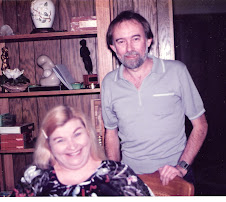
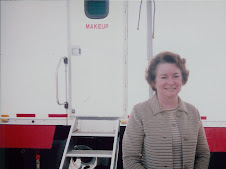

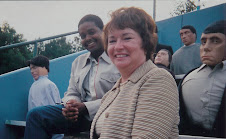






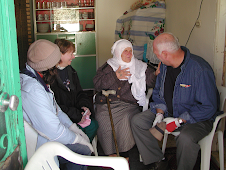
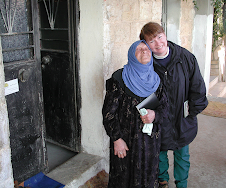


Its touching to me that the people were so easily receptive of yall. You relate the story in a wonderful way!
ReplyDelete